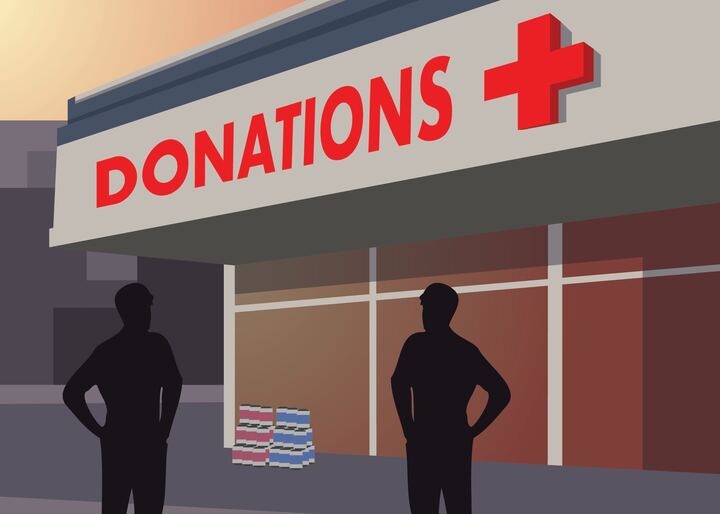Hurricane Helene made landfall on Sept. 26. and brought devastation to the southeast corner of the United States. Florida, Georgia, South Carolina, North Carolina, Virginia and Tennessee reaped the harrowing effects of this category-four storm.
“Currently, more than 150 human casualties have been confirmed, and that number is sure to rise,” said Paul Doss, professor of geology. “Hundreds are still missing or unaccounted for. Estimates for insured losses exceed $25 billion. The damage caused by Hurricane Helene could very easily take months to even years to repair. Some communities in parts of Appalachia in Tennessee and North Carolina may never be rebuilt.”
Doss said the 2024 hurricane season was predicted to have a record number of hurricanes, but fewer have occurred than the initial prediction. The average damage range of a hurricane depends on the strength of the storm, the location of the landfall and its timing with the title waves, yet these traits cannot fully depict the damage a hurricane can cause.
“If a storm surge coincides with a high tide, damage is always worse,” Doss said.
Thousands — if not millions — of people need help right now. While this large scope is overwhelming to think about as one person, practical steps can be taken now and in the future to assist the relief effort.
And yes — even college students have the opportunity to help now.
Trent Engbers, professor of political science and public administration, said there are three stages to disaster recovery: the immediate phase, the aftermath phase and long-term recovery.
“If people are thinking about how they want to help, the needs of each one of those phases are very different and will necessitate a different response,” he said.
Engbers said a public administrator’s first instinct normally is to stabilize the situation in terms of having an appropriate response regarding evacuations to prevent the situation from worsening. Public administrators also have to triage the needs of the community in the immediate response phase. This may look like making sure people have portable water first, then getting the electricity back up and then caring for people who were unable to evacuate.
It’s too early to know how effective the emergency response was to Hurricane Helene.
“For almost every natural disaster response that we have experienced, there is inevitably a honeymoon period in the beginning where people are pleased that someone has come to help them,” Engbers said. “They are thankful for the support that they’re receiving, but as time passes, there is a certain level of critique. There are lessons learned that come out of every disaster recovery.”
At this point, donations are most needed to help aid the recovery effort.
“Anyone that would perhaps want to go to that community to provide service at this point in time is likely going to do more harm than good if they’re going to be another person getting in the way unless they have significant experience in disaster recovery,” Engbers said.
Engbers encouraged people to find an organization to donate money to and help hurricane relief efforts. The American Red Cross is a nonprofit that has assisted in disaster relief for decades. Every community throughout the United States has a United Way that connects to other organizations that assist in disaster relief.
Engbers said he is a fan of Catholic charities because they have strong connections in different communities and can effectively take a donation and “turn it into actionable, life-changing impact for the people in those communities.”
“At this point, it’s really about giving dollars,” he said.
While college students may not have a lot of money to donate now, that doesn’t mean they can’t help the recovery effort in the long term.
The long-term disaster recovery phase can take anywhere from one to two or up to 10 years. As the needs of affected communities change, students can volunteer and aid these communities in their recovery efforts.
“In a couple of weeks, Hurricane Helene will be out of the news,” Engbers said. “But that doesn’t mean that a year or two years or three years from now that community is still not going to be reeling.”
Engbers encouraged students to stay updated on recovery progress and the needs of each community moving forward from the aftermath of Hurricane Helene.
“To be aware, to continue to follow the issue, to not lose sight of it as we move on to the next natural disaster and to find a place down the road and be able to contribute your time, that will be an important next step,” Engbers said.




